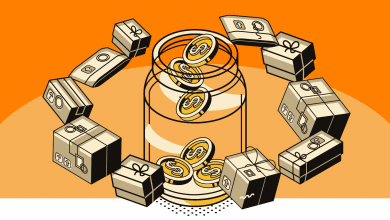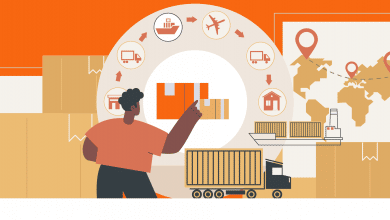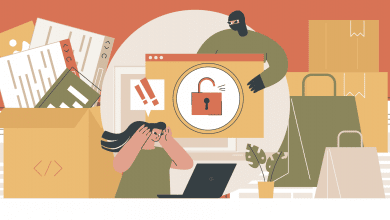The Best Ways to Pay Your Chinese Suppliers
Paying for the products that you have ordered from your Supplier is one of the most nerve-wracking things when you're just beginning a relationship with a Supplier. Did the money you just wire-transferred make it to your Supplier or did it get lost in cyberspace? If it did reach your Supplier, will they actually ship your goods?
Related Podcast: Episode 39: Doing Business with Chinese Manufacturers
Contents
- Fraud Isn’t Your Biggest Concern
- When and How Much to Pay Your Chinese Supplier
- What Currency Will You Use When Dealing With Chinese Suppliers?
- How Do You Pay Your Chinese Supplier?
- Do Chinese Suppliers Accept Other Payment Methods Such as PayPal and Credit Cards?
- How to Negotiate Better Terms Over Time with Your Chinese Supplier
- Conclusion
Fraud Isn't Your Biggest Concern
Fraud is quite uncommon when dealing with a Chinese supplier. In fact, I would argue it's as common/uncommon as it is in the West. Remember, the crime rate is considerably lower in most North East Asian countries and is often dealt with more severely than in the West.
Paying a Supplier and having them take your money and never ship your goods is unlikely to happen. Your biggest concern is that there will be delays shipping your goods and/or you will receive inferior quality goods.
With that being said, fraud does of course happen. Often these things happen by either a) a buyer dealing with an individual pretending to be a Chinese supplier, i.e. the same scams originating out of certain African and Eastern European countries we're accustomed to, or b) a buyer looking to illegally import counterfeit goods and being scammed.
As long as you take the same precautions you would when buying something online in your home country you will more than likely avoid any fraud issues.
When and How Much to Pay Your Chinese Supplier
When dealing with a Supplier or Vendor's home country, we're accustomed to being given payment terms, i.e. paying for something 30 or 60 days after receiving it. This isn't normally the case in China, especially when first starting out.
In China, the normal payment terms are a 30% deposit with 70% paid upon completion, especially when you first start working with a Supplier.
For some products which are very resource-intensive and require the Supplier to pay a lot of up-front cost for resources (i.e. steel, brass, etc.) they may ask for higher payment terms, possibly 50%/50% or even 100% upfront.
However, if you are a new importer and first starting a relationship with a Supplier, I would be very skeptical of anything greater than 30%/70%.
In China, the normal payment terms are 30% deposit with 70% paid upon completion.
What exactly do we mean by completion? Completion normally means them sending you a copy of the Bill of Lading confirming that the goods have been loaded onto a ship and are in the process of being delivered to you.
This does not mean that the ownership of the goods has been assigned to you, only that the supplier has shipped the goods. Once you have paid for the goods, your Supplier will send you a copy of the original Bill of Lading giving you ownership of the goods.
If you're curious about how much you need to start importing from China, watch this video:
What Currency Will You Use When Dealing With Chinese Suppliers?
In China, every transaction is done in US Dollars. There are some technical reasons behind this, such as the fact the Chinese Reminibi is not a fully convertible currency, but the point is, be prepared to pay in US Dollars.

As you may have heard, the Reminibi (the Chinese currency) is essentially pegged to the U.S. dollar, so paying in US Dollars has no real currency fluctuation. For you, however, there can be considerable currency fluctuation.
If your home currency is especially strong against the US Dollar then your goods will be cheaper; if your home currency is especially weak against the US Dollar then your goods will be more expensive.
During the Financial Crisis of 2008, many European importers went through some rough times as the value of the Euro dropped significantly against the U.S. Dollar, so constantly monitoring exchange rates is a hobby for most importers.
How Do You Pay Your Chinese Supplier?
When you’re paying for goods in China, there are two common ways to pay: wire transfer/Telegraphic Transfer (TT) and Letter of Credit (LOC). Of these, TTs are by far the most common. I’ll give a brief overview of LOCs and afterwards, assume you’re doing TTs and give a summary of the best practices.
Letters of Credit (LOC)
LOCs are basically insurance issued by your bank on your shipment. Let us say you buy 100 Horse Saddles from Fenchu Factory for $10,000. You pay $10,000 to your bank. However, the bank does not release the funds to Fenchu Factory until your bank can verify 100 Horse Saddles have arrived in your city. Sounds great, doesn’t it?
Well, there are a couple of problems. Most factories won’t even consider a LOC on shipments under $5,000-$10,000 because of the extra trouble/risk for them.
Your bank is going to charge 2% or so of the entire payment. And, most importantly, the LOC verifies only that 100 Horse Saddles arrive to you, not that 100 GOOD QUALITY saddles arrive to you. If the saddles break the first time someone uses them, the bank does not care.
With the above in mind, letters of credit are not very popular with small-medium-sized importers.
Wire Transfer/Telegraphic Transfer (TT)
Wire Transfers, commonly called TTs, are easy to understand. You agree to pay $10,000 for 100 Horse Saddles. You go to your bank and wire that amount of money to your Chinese supplier. Nervous already are you?
You should be. Sort of. Almost all of the risk is placed with you, the buyer. This is why ensuring the integrity of your supplier is critical.
I’ve sent countless TTs to countless suppliers and never had any problems because I did my homework. A legitimate business is not going to steal your money. They may send you poor-quality products, but no payment method protects you from this.
Do Chinese Suppliers Accept Other Payment Methods Such as PayPal and Credit Cards?
Very few suppliers want to accept payment via PayPal and credit cards. There are a few reasons for this.
First, PayPal accounts are still quite a bit harder to get in China than they are in the West.
Second, PayPal and credit cards have high fees associated with them. Suppliers are working on small margins, to begin with, so these fees cut into these small margins.
Finally, many of us prefer to pay for goods via PayPal and credit cards because of the protection it affords us. If our goods haven't been shipped for 3 weeks after we order them through a local online retailer we can file a chargeback. If we receive a product that is dead on arrival, we file a chargeback.
In China, where delays are extremely common, and poor quality products also prevalent, being able to immediately have a payment reversed after they've delivered the goods is terrifying.
As for paying via Western Union, my antenna always goes up when I see a supplier asking to be paid via this method. Paying via Western Union is a relatively anonymous form of payment.
When paying via wire transfer you need to have the full legal name and address of your company. If you're wire transferring money to Fen Chun Import Export Company Xyz with an address in China this gives you some reassurance that you're dealing with a legitimate supplier.
Individuals in China without legal Import/Export companies (which are quite a bit trickier to get in China) will also often ask to be paid via Western Union. This does not necessarily mean that you are going to be scammed but it does lend suspicion to the fact that you may not be dealing directly with a factory.
How to Negotiate Better Terms Over Time with Your Chinese Supplier
If you're nervous when you pay 30% of the money to your supplier before production of your products even begins, remember that your supplier is equally as nervous that they've begun producing products and haven't received 70% of the payment.
Trust is of huge importance when doing international business and so is your credit. We're not talking credit as in a FICO score, but credit that you build with your supplier as a reliable client who always pays.
As you build a relationship with your supplier, you can negotiate better payment terms.
We've all lent money to friends with varying degrees of skepticism. Some friends we're happy to lend hundreds of dollars to and not worry about when they pay us back because we know they will pay us back. Other friends, we're nervous to lend even $20 because we're unsure if we'll be paid back.
The same is true for your Supplier. If you've placed several orders with your Supplier and engaged in relationship-building activities like actually visiting them in China, you are building credit with your supplier.
After visiting any of my suppliers in China, I have never had a problem asking to pay 100% upon the order being completed. Meeting a person removes that uncertainty of only having ever talked to someone through email or Skype. So visit your Suppliers and you can expect similar results.
Over time, you can even ask to pay for part of an order after you have received it. Requesting to pay 75% of an order upon completion and 25% 30 days later is not uncommon.
Conclusion: Cash Flow is Critical
For any importing business, monitoring your cash flow is essential.
When you first begin, having money tied up for 30 or 60 days while your order is being produced might not be a big deal. But over time, as your orders get bigger, it becomes a bigger issue.
Therefore, you should always be conscious of your credit in the eyes of your Supplier by paying reliably and on time and engaging in relationship-building activities like visiting them.






One Chinese printer I’ve contacted will accept Paypal as a form of payment but they add 5% to the total to made up for the Paypal fees they must pay. I don’t mind that but the printer also insist that the entire bill to paid before production begins. Big turn off for me. .
The 5% is quite normal from any Chinese companies. Some companies will insist on full payment before production (especially for something that is completely you unique to yourself, like printing) but if they’re demanding this simply because you pay via PayPal, I don’t understand why that would impact things.
hello i need to find a freight forwarder for a small carton from China to bypass canada (n where i live ) to the us and on to amazon warehouse .. please advise
Hi – way too broad of a question! But check out fleet.com for forwarders.
My husband is interested in buying a mini excavator from China off of an app. The supplier has asked for payment via western union and wants full amount..I dont trust this, also he said at first we had to pick up at a Chinese port. Now hes saying he can ship to us in the US. Not sure if there legit.
The western union is very fishy. I’d be very careful. Even a wire payment where you can see the exact name of the company it’s going to is more secured.
I have a supplier in china, she gave me the full details of bank account name and number of the company thru Wire bank transfer process. But the bank name and address was in hongkong. Do you think she’s a legit supplier
Don’t know, but it’s pretty common to have HK information.
Hi Dave,
Doesn’t a letter of credit helps if you don’t have cash flow? For example, if my customer wants to make an order of 150,000 and I don’t have the money, I ask my client for a letter of credit. Then, I go to my bank and they issue a letter of credit for me and I use that to pay the factory?
The bank normally requires you to have the funds in your bank account for whatever amount that letter of credit is for. It’s basically like escrow.
Hello Dave,
Thank you for all the information you have provided so far, it helps a lot. I have a question, I am in talks with a few brand I found online for import of flasks, how can check the authenticity of supplier/manufacturer?
Try Jungle Scouts supplier database.
Hello Dave, Our company recently placed an order with Chineese supplier. The product got ready and we made external party do QC of product. Then they came back stating they wont be able to ship the product. They are not revelaing what the exact issue. Finally they have agreed to refund back the full amount, but its over one week no response from them. What can we do from US to get back the money.